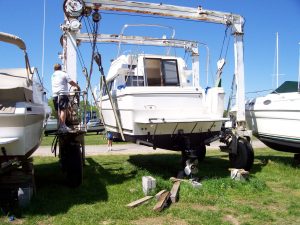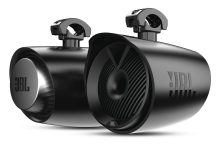BEWARE! — BoatUS has some mistakes to avoid when working with a service provider or when buying a boat.
Five Mistakes That Can Cost Boaters
Here are some lessons learned from cases taken out of the BoatUS Consumer Protection Dispute Resolution Program files.
For the past 28 years, the Boat Owners Association of The United States (BoatUS) Consumer Protection Dispute Resolution Program has gone to bat thousands of times for BoatUS members seeking help after disputes arise with boat purchases, repairs, or other service issues. This free service offered to BoatUS members often gets successful resolutions for these types of consumer issues.
 Here are some mistakes BoatUS has identified that can help any boat owner avoid a dispute with a service provider or with a boat purchase this summer.
Here are some mistakes BoatUS has identified that can help any boat owner avoid a dispute with a service provider or with a boat purchase this summer.
-
Not using a purchase contract:
When a BoatUS member found out that a battery and other equipment had been removed from the sailboat he had purchased, he called BoatUS Consumer Protection. Unfortunately, the member did not have a purchase contract that spelled out the price, listed included equipment, and was signed by both parties. This was an expensive lesson because the battery and other equipment accounted for about half of the purchase price of the boat.
-
Not sea-trialing the boat after repairs are made:
A BoatUS member purchased a used powerboat that was found to have a cracked engine head. The sales contract said the engine had to be working, so repairs were made and the dealer verified with a compression test to ensure everything was fine. It wasn’t. After the purchaser paid for the boat, the engine promptly blew a hole in the side of the block. The dealer balked at offering a used engine replacement because the contract stated “as-is” condition. Lesson: Don’t accept the boat until all repairs have been made and verified with a sea-trial, and be sure to spell out contingencies in the contract
-
Not allowing a shop to attempt to honor its warranty:
After a BoatUS member’s inboard engine quit on a Memorial Day trip, he decided to seek out a repair shop on Craigslist in order to get back on the water as quickly as possible. After he got the boat back from a shop he’d found, the engine was still not working, so the member lost confidence and took it to another shop to fix it, which it did satisfactorily. But, when the member went back to the first shop to seek warranty reimbursement, it refused. Lesson: Warranty law allows a shop to be given the opportunity to correct the problem. Don’t expect a shop to give up this right, even if you are in a hurry.
-
Not verifying the paperwork was sent:
A BoatUS member bought a ski boat with several years remaining on a 5-year manufacturer warranty that the seller said transferred with the boat. Shortly thereafter, the boat had a catastrophic engine failure due to a failed pump. Unfortunately, the seller neglected to transfer the warranty to the member, and the $10,000 engine replacement was not covered. Lesson: Some warranties have specific transfer procedures that must be followed, including paying a fee, paperwork that must be signed and delivered, and sometimes even a maintenance check by a qualified shop. Add a sales contingency to the sales contract that addresses the successful transfer of the original warranty
-
Not letting the shop be involved in the diagnosis:
When a small diesel engine was having starting issues, a repair shop told a BoatUS member that water was found in the cylinders. Instead of allowing the shop to investigate further and fix the engine, the member bought a new engine to have the shop install. However, the new engine was just the block, so the shop had to install the old starter, alternator and intake and exhaust manifolds to complete the job. After installation, water was soon found in the new engine’s cylinders. The shop advised the member the warranty was only on the new base engine, and not the old manifolds that leaked in the engine. Lesson: By telling a shop that the engine simply has starting issues, for example, a successful fix by the shop will come with a warranty on the work. However, telling the shop what parts to replace implies no warranty to the initial problem – the shop is just following your orders. For major work especially, let the shop do their job and recommend the repair.
BoatUS has some help with tips on choosing a repair facility at www.BoatUS.com/Repair-Facility. To join BoatUS for $24 annually, go to BoatUS.com.
For more BoatUS tips visit here.































